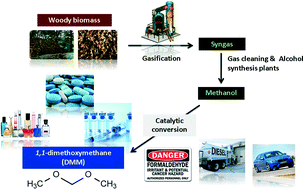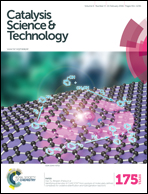One-pot 1,1-dimethoxymethane synthesis from methanol: a promising pathway over bifunctional catalysts
Abstract
Dimethoxymethane or DMM is a versatile chemical with applications in many industries such as paints, perfume, pharmacy, and fuel additives. DMM can be produced through the reaction of methanol and formaldehyde in the presence of acid catalysts or, directly, through the selective oxidation of methanol over catalysts with redox and acid functionalities. In terms of sustainability, the so-called bio-methanol derived from syngas obtained via biomass gasification can be used in DMM synthesis. In this review article, we have condensed and classified the research outputs published over the past decade aimed at producing DMM from methanol over different types of catalysts. The majority of studies described the reaction of methanol to DMM in a promising way using heterogeneous catalysts in the gas phase for the ease of product and catalyst recovery as well as suitability for continuous processing. Likewise, the influence of parameters including catalyst component, feed composition, and temperature on the performance of catalysts utilised in DMM production is analysed and discussed. Further, some perspectives concerning the evolution of potential DMM market with respect to the characteristics of the best catalyst materials for high DMM productivity are expressed.


 Please wait while we load your content...
Please wait while we load your content...